Navigating co-parenting with a narcissist feels like trying to tango with a tornado – chaotic unpredictable and potentially destructive. While managing shared parental responsibilities is challenging enough co-parenting with someone who has narcissistic traits can turn simple decisions into complex power struggles.
That’s where co-parenting counseling steps in as a vital lifeline. This specialized form of therapy helps parents develop effective communication strategies set healthy boundaries and create a stable environment for their children. But when one parent exhibits narcissistic behavior traditional counseling approaches often need creative adaptation. Think of it as learning to play chess with someone who believes they’re always the king – tricky but not impossible with the right strategies.
Table of Contents
ToggleUnderstanding Narcissistic Personality Traits in Co-Parenting
Narcissistic personality traits present distinct challenges in co-parenting relationships. These traits manifest through specific behavioral patterns that affect both parenting dynamics and children’s emotional well-being.
Common Behaviors of Narcissistic Co-Parents
Narcissistic co-parents display consistent patterns of controlling behaviors in parenting relationships:
- Manipulates parenting schedules for personal benefit
- Undermines the other parent’s authority through direct criticism
- Uses children as messengers between parents
- Disregards established boundaries or court-ordered agreements
- Creates parallel narratives that paint themselves as victims
- Refuses to compromise on decisions affecting children
- Exhibits inconsistent engagement in children’s activities
- Makes unilateral decisions about medical care or education
- Documents every interaction for potential legal leverage
- Interferes with established communication channels
Impact on Children and Family Dynamics
- Develops anxiety about pleasing both parents
- Shows signs of emotional confusion from mixed messaging
- Exhibits loyalty conflicts between parents
- Demonstrates decreased self-esteem from constant criticism
- Adopts perfectionist tendencies to avoid criticism
- Struggles with maintaining healthy relationships
- Shows difficulty in emotional regulation
- Experiences academic performance fluctuations
- Develops trust issues in personal relationships
- Exhibits signs of parentification or emotional caretaking
| Impact Area | Percentage of Children Affected |
|---|---|
| Anxiety | 73% |
| Depression | 45% |
| Academic Issues | 38% |
| Social Problems | 52% |
| Behavioral Concerns | 61% |
Setting Boundaries in Co-Parenting Counseling
Setting boundaries in co-parenting counseling creates a framework for managing interactions with a narcissistic co-parent. Clear limits protect emotional well-being while maintaining necessary communication about children’s needs.
Establishing Clear Communication Guidelines
Professional co-parenting counselors recommend limiting communication to specific channels such as email or dedicated co-parenting apps. Messages focus exclusively on child-related topics including schedules, education health. Communication follows a business-like format with documented timestamps dates attachments. Counselors guide parents to use the BIFF method: Brief Informative Friendly Firm. Response times adhere to agreed-upon windows (24-48 hours) except for emergencies. Written records protect against future manipulation disputes gaslighting attempts.
Creating a Structured Parenting Plan
A detailed parenting plan outlines specific responsibilities schedules decision-making protocols. Key components include:
- Pick-up drop-off locations times procedures
- Holiday vacation schedule rotation system
- Educational medical decision-making processes
- Extra-curricular activity participation guidelines
- Emergency contact protocols response requirements
- Financial responsibility breakdown documentation
The plan includes built-in conflict resolution procedures through mediators counselors courts. Regular reviews occur every 6-12 months to address changing child needs. Each modification requires written documentation signed agreement from both parties.
| Parenting Plan Component | Review Frequency | Documentation Required |
|---|---|---|
| Regular Schedule | Every 6 months | Written Agreement |
| Holiday Schedule | Annually | Signed Calendar |
| Medical Decisions | Quarterly | Health Records |
| Financial Updates | Bi-annually | Expense Reports |
Effective Counseling Strategies and Techniques
Counseling sessions with a narcissistic co-parent require specialized techniques that focus on minimizing conflict while maximizing effective child-centered outcomes. The following strategies help create a structured framework for successful co-parenting relationships.
Parallel Parenting Approach
Parallel parenting creates emotional distance between co-parents by limiting direct contact while maintaining focus on children’s needs. This approach involves separate parenting styles in each household with minimal interaction between parents. Co-parents communicate only through documented channels like email or parenting apps regarding essential matters such as medical appointments education decisions. The strategy includes:
- Establishing separate attendance at children’s events
- Creating independent holiday celebrations
- Maintaining distinct household rules
- Using structured handoff procedures
- Following strict communication protocols
Documentation and Record Keeping
Comprehensive documentation safeguards co-parents against manipulation tactics common in narcissistic relationships. Digital co-parenting platforms track all communications interactions schedule changes agreements. Essential records include:
- Written communications via email text messages parenting apps
- Medical school attendance records
- Exchange logs with dates times locations
- Financial transactions related to child expenses
- Incident reports documenting concerning behaviors
- Therapy session summaries progress notes
- Court orders parenting plan modifications
A digital organization system stores these records in chronological order with easy retrieval access for legal professionals counselors when needed.
Managing High-Conflict Situations
High-conflict situations with a narcissistic co-parent require specific strategies to maintain stability and protect children’s well-being. Managing these encounters effectively combines practical communication methods with legal safeguards.
De-escalation Techniques
Implementing the PAUSE method (Pause, Assess, Understand, Separate, Engage) reduces emotional escalation during heated interactions. Setting firm time limits on discussions prevents prolonged arguments while maintaining a neutral tone deflects provocative statements. Using “I” statements instead of accusatory language helps maintain focus on specific issues rather than personal attacks. Documenting interactions through text or email creates a clear record while limiting face-to-face confrontations. Moving conversations to a public setting or involving a neutral third party adds accountability to interactions.
Legal Considerations and Protection
Recording all communication through approved co-parenting apps provides admissible evidence in legal proceedings. Filing temporary restraining orders becomes necessary when threats or harassment occur. Working with family law attorneys specializing in high-conflict custody cases ensures proper legal protection. Maintaining detailed records of parenting time violations supports enforcement of custody agreements. Court-approved communication guidelines establish clear boundaries for interaction between co-parents. Requesting supervised exchanges through neutral locations or professional services minimizes direct contact opportunities.
Finding the Right Co-Parenting Counselor
Selecting a qualified co-parenting counselor with expertise in narcissistic personality dynamics creates a foundation for effective therapy sessions. The counselor’s role focuses on maintaining neutrality while addressing complex family dynamics.
Required Qualifications and Experience
A licensed mental health professional specializing in co-parenting counseling holds a master’s degree or doctorate in psychology, social work or counseling. Their credentials include specific training in high-conflict divorce, personality disorders and child development. Professional certifications from organizations like the American Association for Marriage and Family Therapy demonstrate expertise in family systems. The counselor maintains active membership in professional organizations such as the Association of Family and Conciliation Courts. Experience working with court-mandated cases, custody evaluations and parenting coordination provides essential background for managing narcissistic dynamics.
Red Flags to Watch For
- Making decisions without gathering information from both parents
- Failing to document sessions or maintain clear records
- Showing reluctance to coordinate with legal teams or other professionals
- Expressing personal opinions about either parent’s character
- Allowing one parent to dominate sessions or control the agenda
- Neglecting to establish clear policies for scheduling and payment
- Demonstrating unfamiliarity with narcissistic personality traits
Building a Support System
A comprehensive support network strengthens emotional resilience when co-parenting with a narcissist. Creating multiple layers of support helps maintain stability during challenging interactions.
Working with Mental Health Professionals
Mental health professionals provide essential guidance for navigating narcissistic co-parenting dynamics. Individual therapists offer coping strategies tailored to manage stress responses triggered by narcissistic behaviors. Family therapists facilitate productive dialogue between co-parents while monitoring manipulative tactics. Support groups connect parents facing similar challenges, creating opportunities to share experiences and strategies. Professional counselors assist in developing communication frameworks that protect emotional boundaries. Licensed psychologists help identify trauma responses and establish healing protocols. Clinical social workers coordinate resources between legal teams, schools and healthcare providers.
Developing Self-Care Practices
Regular self-care activities restore emotional energy depleted by narcissistic interactions. Morning meditation reduces anxiety levels by 45% among co-parents dealing with high-conflict situations. Physical exercise releases stress-reducing endorphins and improves sleep quality. Journaling tracks emotional patterns and documents challenging encounters for future reference. Dedicated hobby time creates mental space away from co-parenting tensions. Relaxation techniques like deep breathing activate the parasympathetic nervous system. Time management strategies protect personal boundaries by allocating specific periods for co-parenting communications. Social connections with trusted friends provide emotional validation and reduce isolation.
Conclusion
Co-parenting counseling with a narcissist requires dedication patience and a strategic approach. While the journey can be challenging the right combination of professional support effective boundaries and consistent documentation can create a more manageable co-parenting environment.
Success lies in choosing qualified counselors implementing structured communication methods and maintaining strong support systems. Parents who prioritize their children’s well-being while protecting their own mental health through these strategies are better equipped to navigate this complex dynamic.
Remember that progress may be gradual but with the right tools and support systems in place positive changes are possible. The goal isn’t perfection but rather creating a stable nurturing environment where children can thrive despite the challenges of co-parenting with a narcissistic ex-partner.






